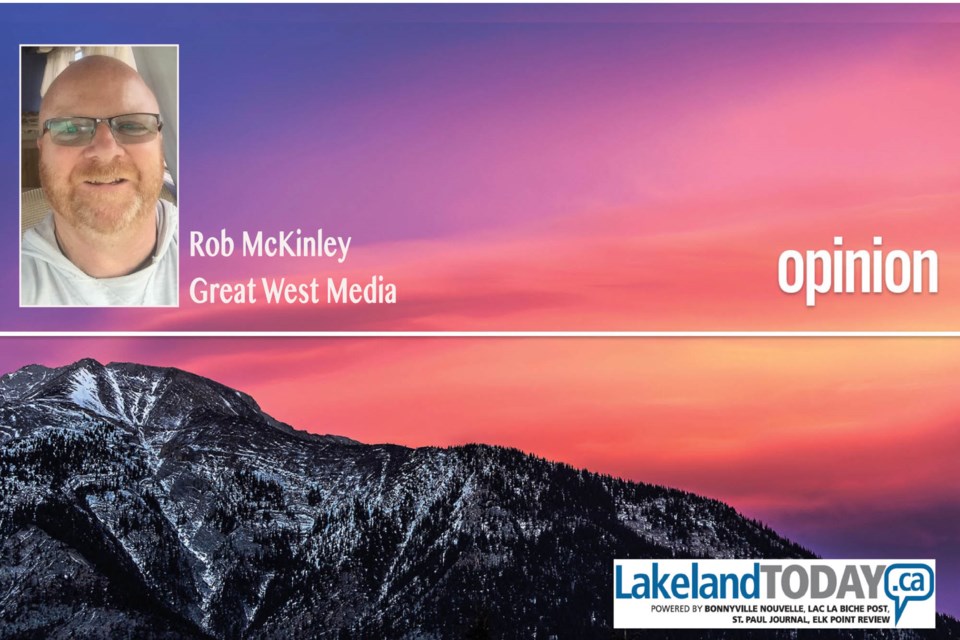"No media allowed."
It seems just a little bit like censorship. Or perhaps a way to keep things from the public, or to control a narrative. Of course, it was also about privacy and human decency.
The sign was put up near the Lac La Biche evacuation centre by municipal officials last Wednesday. Beyond the sign were hundreds of evacuees fleeing the recent fires near Fort McMurray. The ones arriving in Lac La Biche were some of an estimated 8,000 residents in and around the northern city who were told to pack up their belongings and flee from the path of a 20,000 hectare forest fire last Tuesday. It must have been harrowing.
Frustrated, worried, scared, tired, confused, impatient ... numb – all likely answers to a journalist's worst question to ask people during times of tragedy and turmoil. But well-trained journalists aren't going to thrust a camera and microphone into the noses of someone in that position and ask, "How do you feel?"
That is the same misguided, stereotypical, paint-with-the-same-brush way of thinking that also believes all politicians and bureaucrats need to control the message by blocking any outside access. It's a shame that some in power still think this way, and emphasize it by hanging signs to enforce it.
A good journalist might like to know what the evacuees think of the hospitality and compassion shown by the community that has opened its arms to them. Likely, people in the community would also like to know that. Perhaps some evacuees have a few issues about how they think the wildfires have been handled, maybe they have stories about helpful police or tow truck drivers. Maybe they want to thank the seniors in the evacuation centre from providing meals in their time of need. Some might even comment on local customer service, the price of fuel or their feelings on compensation amounts offered by the provincial government. A good journalists may also be able to offer answers to questions the evacuees have about the community or the process.
The evacuees might have a lot to say - or nothing. But as of last Wednesday, with signage and orders to restrict media access, local officials made it very difficult for anyone to know.
Restricting access is a two-way street. Many of those people forced to flee from Mother Nature's rage have powerful stories to share. Those stories can enrich and educate local residents and others who may be facing, or will be facing similar situations in the future. Hiding that availability, by shielding people from being allowed to ask questions or have questions asked of them, only opens the door to scripted responses, pre-ordained narratives and speculation.
Ironically, it also makes you wonder if the municipal officials who thought they needed to put up the signs might also have a story to tell.

